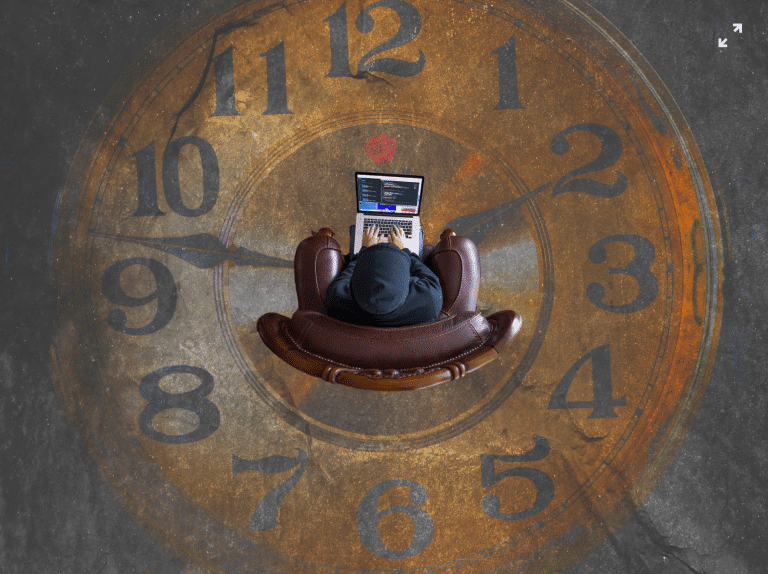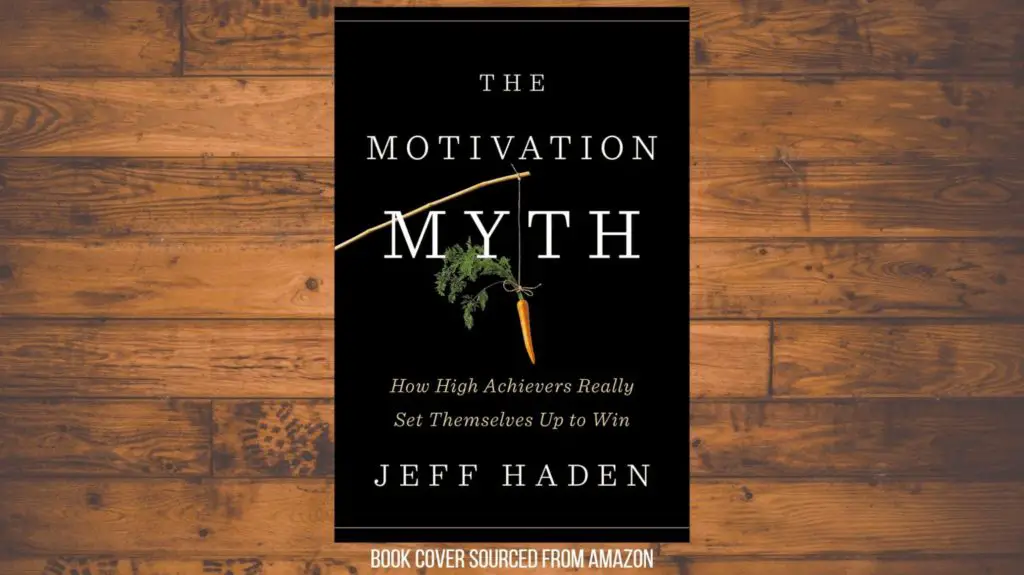This post may contain affiliate links, which means I’ll receive a commission if you purchase through my links, at no extra cost to you. Please read full disclosure for more information.
Have you ever taken the time to notice how long a task takes you to complete? How about that same task when you are given a deadline?
When you reflect on it, you may find that the time it took you to complete a similar task varied from 30 minutes to a few days.
Why is this? If you completed the task in 30 minutes once before, you should always be able to complete it in 30 minutes, right?
Think back again about what made those occasions different for the time you completed it in 30 minutes versus the time it took you days.
It’s possible that Parkinson’s Law was taking effect.
WHAT IS PARKINSON’S LAW?
Parkinson’s Law is the idea that “Work expands to fill the time available for its completion.”
The adage was coined in 1955, by Cyril Northcote Parkinson, who was a British historian. The quote above was in the opening line of his article in The Economist, referencing his experience of working in the British civil service.
To explain the quote, the idea is that if you are given a week to do something, it will take you a week.
If you are given a month, it will take you a month.
And if you are given a year to do something, it will take you a year.
In his book The 4-Hour Work Week, Tim Ferris said,
“Parkinson’s Law dictates that a task will swell in (perceived) importance and complexity in relation to the time allotted for its completion. It is the magic of the imminent deadline. If I give you 24 hours to complete a project, the time pressure forces you to focus on execution, and you have no choice but to do only the bare essentials.
If I give you a week to complete the same task, it’s six days of making a mountain out of a molehill. If I give you two months, God forbid, it becomes a mental monster. The end product of the shorter deadline is almost inevitably of equal or higher quality due to greater focus.”
EXAMPLES OF PARKINSON’S LAW
Academics
You are given an essay to write that is due in two weeks. You know the essay is only 1,000 words and can be done in one day but you don’t end up starting until a few days before.
During those two weeks though, you dread the idea of having to eventually start it.
Once it’s the night before, you buckle down and end up completing the assignment in a few hours.
Why couldn’t you have just completed it in a few hours when it was initially assigned?
Think of all the mental energy you could have saved.
Personal Life
It’s tax season and you know you have until April 15 to file your taxes.
You have had the documentation to be able to file for months, but for some reason, you still wait until the first week of April to file.
The thought of doing your taxes lingers around in your mind and you envision all the (thought to be) complexities that will come up when you attempt to do them.
Work
You are responsible for building presentations to present to management.
Your boss springs a request on you at 9:00 am to have a presentation done for him at 3:00.
You frantically dial in and work through the day, getting the presentation finished by the deadline.
However, on another day, your boss gives you a similar request to build a presentation but gives you two days to get it done. Somehow, the presentation takes you the entire two days to finish even though you have done this in much less time before.
Why is this?
According to Parkinson’s Law, the work expands to fill the time available for completion.
We make plans for a task based on the amount of time we have to complete it. We put things off until the deadline approaches, where we make decisions and analyze the trade-offs to get the task done.
Knowing how much time we have to complete something leads us to wait until the last minute.
Not only does the work expand to fill the time, but psychologically, the task also increases in complexity and becomes more daunting through time.
You may find your internal monologue saying “Oh jeez. I forgot I still have to work on that project at some point this week. When do I want to work on it? How do I want to work on it? Eh, I’ll think about this again tomorrow.”
This conversation with yourself repeats each day that goes by and the task grows in complexity.
Going back to the example at work, when you have two days to complete a presentation, you might think that the more time you give yourself to complete it, the better it is going to be.
This is usually never the case. At some point, the value added per unit of time tapers off and will flatten out or even decline.
The rest of the time used before the deadline is usually spent on procrastination or spending time on the non-essentials.
It is an interesting idea to think about, but you’ll soon notice it is prevalent everywhere in your life and you’ll see how much your productivity is affected by it.
HOW TO OVERCOME PARKINSON’S LAW
Being aware of this law is only half the battle.
You have to find ways to overcome this law to skyrocket your productivity.
I’ll help give some tips on how you can overcome Parkinson’s Law.
Create an artificial deadline for yourself
Many times in your life, you’ll have external deadlines to complete a task, such as the tax filing due date from the IRS, or a hard deadline from your boss to turn in a presentation.
What about the times when it is just you and yourself trying to get things done?
Try to set an artificial deadline.
Create your own deadline and hold yourself to stick to it.
If you don’t give yourself a set time to get something done, it may never get done.
Create ambitious deadlines
Piggybacking off the tip above, you should not only set an artificial deadline, but you should set an ambitious deadline.
One way to do this is to plan out how long a task will take you to complete and cut that time in half.
That halved time is what you will give yourself to complete it.
This puts pressure on yourself to cut out the fat in completing something and allows you to focus on execution.
Cutting your time in half creates an ambitious deadline that you will think is far out of your reach, but after trying this tip out, you will notice that you’ll hit more of those deadlines than you initially thought.
A great example is Elon Musk and Tesla.
Tesla is known for giving seemingly impossible production goals on the delivery of their cars.
This puts pressure on the entire company to become fully aligned and optimized to meet the goals or suffer the consequences of backlash from their community of customers and investors that hold them to their word.
Tesla hits many of its goals, but they miss some along the way. But through these ambitious deadlines and goals, they achieved exponential growth in production and have become a powerhouse company in the auto space.
Tell someone else when you will complete something by
Maybe you are struggling with holding yourself accountable for your artificial deadlines.
Another method of circumventing Parkinson’s Law is to tell someone else when you’ll complete something by.
Have you ever had a goal of losing weight by a certain amount of time? Maybe you and your friends have a competition on who can lose the most weight by spring. You all share your starting weights and tell each other how much you plan to lose by spring.
When you tell others when you will complete something, it creates external pressure for you to do something.
In the example of losing weight, you know that if you don’t do the work and reach your goal, you’ll be embarrassed to share your results and under-performance with your friends.
You can do the same in other areas. At work, tell your boss or colleague you’ll have the presentation done by noon.
You can bet you’ll do everything you can to get the presentation completed by then. If you didn’t, you would lose the trust of your boss and your credibility would be tainted.
Try to find ways of putting external pressure on yourself.
Build the habit
Making this change from a procrastinator to a focused executor of work will be the hardest at the beginning.
The reason for this is that you have built up the habit and lifestyle of putting things off until the last minute.
All habits are hard to break and this one is no different.
Go into this change knowing that the beginning will be the hardest portion of this shift and that if you stick to it, it will gradually become easier and soon become second nature.
Become the person who gets things done!
BENEFITS TO YOUR PROFESSIONAL AND PERSONAL LIFE
Learning how to navigate the effects of Parkinson’s Law will truly change how productive you are.
By completing tasks and projects in the minimal time required to do so will free up your time to work on other things as well.
This free time can be used on other personal errands, or professional projects, or simply free up more time for leisure and doing what you love.
Not only this, but your mind will be a lot clearer and stress-free.
Getting something off your plate is a refreshing feeling and once something is done, you no longer have to expend mental energy worrying about it.
SUMMARY
Now that you are aware of what Parkinson’s Law is, you can practice how to overcome it to be as productive as you can.
When you are early into your career, time is everything and every bit saved is valuable to you.
Procrastination is the top productivity killer and it can be tough to change when you have the habit of putting things off.
I have confidence in saying that once you master getting things done in the minimal amount of time required, you will see the benefits come into your life.



